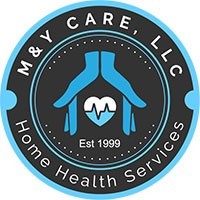In a matter of weeks, a tsunami of coronavirus cases has completely upended life as we know it. Across the country, health care providers are working overtime to save lives, while millions more Americans stay at home to reduce the rate of transmission and take the strain off our overwhelmed emergency departments.
One of the biggest problems we have today is that the rules were not written to respond to a pandemic of unprecedented proportions. Regulatory impediments to the use of home care professionals and telehealth technologies are hurting people. At a time when the government would like to encourage elderly people to stay home and get treated so as not to be exposed to coronavirus, they are maintaining policies encouraging the opposite.
No one understands the importance of social distancing better than older Americans who are most at risk. According to a new report published in The Lancet, people diagnosed with coronavirus over the age of 60 are 20 times more likely to die than those under the age of 60. Meanwhile, the Centers for Disease Control and Prevention (CDC) estimates that a full three-quarters of patients hospitalized with the novel coronavirus are over age 50, with higher rates corresponding with older age. And, because older Americans often suffer from underlying conditions that make them more susceptible to coronavirus such as chronic lung disease, cardiovascular disease, and diabetes, they face even higher risks than their less vulnerable counterparts.
Keeping seniors in the safety of their homes is paramount during this pandemic. That’s why, as America works to “flatten the curve,” expanding access to health care in the home setting has become more important than ever. At a time when hospitals and health systems are scrambling to meet skyrocketing demand, the Medicare home health and home respiratory sectors, for example, are already trained and skilled at treating people in the comfort and safety of their own homes, allowing seniors to remain self-isolated and out of hospitals and other acute-care settings. These sectors collectively employ millions of Americans in communities across the country who are uniquely qualified to care for immunocompromised patients. They represent a “standing army” of health care providers ready to serve seniors with coronavirus or chronic illnesses.
Unfortunately, despite the clear benefits, home health and home respiratory care professionals are bumping into regulatory barriers that prevent them from expanding access to care for millions of Medicare beneficiaries.
For home health care, the Centers for Medicare & Medicaid Services (CMS) has not yet issued guidance enabling home health agencies to provide telehealth services – including remote patient monitoring – to reach their existing patients as well as new coronavirus cases. As doctors increasingly turn to telehealth to safely treat patients at a distance and reduce the burden on hospitals, it is critical that CMS issue immediate guidance so that home health providers can quickly pivot to this swelling patient population.
Moreover, Medicare is still implementing a new payment program that reduces home health reimbursement by more than $1 billion in 2020 alone. Needless to say, with coronavirus cases surging, deep reimbursement cuts are completely out of line with reality and will severely hamper the ability of the home health sector to care for Medicare patients. Instead, this sector needs financial relief.
When it comes to home respiratory care, suppliers of non-invasive ventilators, oxygen, and positive airway pressure machines, CMS has made enormous progress in allowing providers to reach acute patients battling coronavirus by removing burdensome requirements that threatened to slow down the delivery of care.
In addition, Medicare recently took steps to improve access to non-invasive ventilators. While these advances are welcome and will save lives, more remains to be done to ensure vulnerable seniors have the treatment they need. Moving forward, Medicare should quickly pause the inclusion of critical respiratory equipment (including nebulizers, oxygen and BiPAPs,) from the competitive bidding program so suppliers are not undermined when meeting the surging demand for home respiratory care.
And while Congress took positive steps in helping all Medicare providers by including financial relief in the recent CARES Act, more must be done to enable struggling health care providers to remain operational during this crisis in order to protect the health and interests of vulnerable seniors.
Our nations highly skilled workforce of homecare professionals is uniquely qualified to keep seniors out of overwhelmed hospitals by treating them in the home. Now, more than ever, we need the financial support and regulatory relief necessary to quickly deploy our resources to serve even more seniors during this national health emergency.
By Brian Darling | May 4, 2020
Source: Issues & Insights

